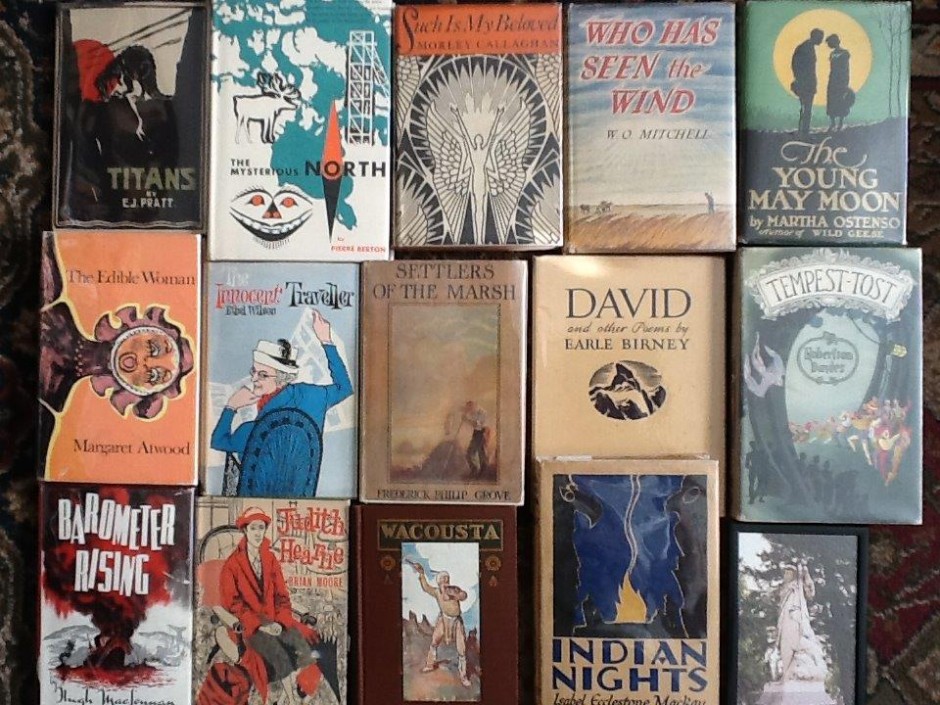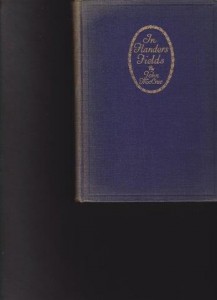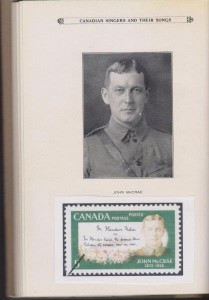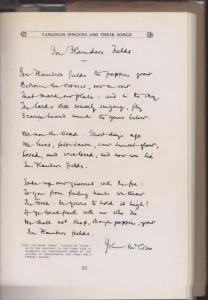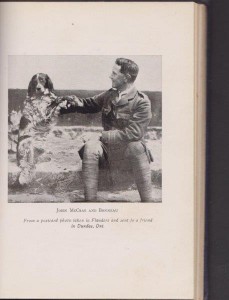(Cover of 1919 Briggs book brought out after the war and after McCrae died; includes 29 more poems and a long reminiscence by Sir Andrew Macphail)
(Photo of Lieut.-Colonel McCrae in Briggs ed. and a Canada stamp about him and his famous poem; the Canadian government also used the poem’s opening lines on the back of its $10 bill)
(the famous error, in McCrae’s own handwritten transcription of the poem for a friend–he wrote “grow” instead of the original “blow” in first line; from Canadian Singers and Their Songs, McClelland & Stewart, 1919)
(Photo of McCrae with pet dog Bonneau taken in Flanders and mailed to a friend in Dundas; from Briggs book)
I guess if one is to be a one-hit wonder, it doesn’t get much better than John McCrae and his permanently remembered, quoted, and sung poem “In Flanders Fields). This is, world-wide, the most famous war poem of all time.
Born in Guelph, McCrae (1872-1918) was a lecturer at McGill as well as a distinguished Montreal surgeon who served in the South African/Boer War and died in France of double pneumonia with massive cerebral infection during WWI. He is buried in Wimereux, France. The poem was first published anonymously in a 1915 Punch magazine.
Recommended reading and viewing: In Flanders Fields: The Story of the Poem by John McCrae, Letser, 1995, and the 75th Remembrance Day Collection DVD, Koch/NFB, 2006, which includes the documentary “John McCrae’s War: In Flanders Fields”.
